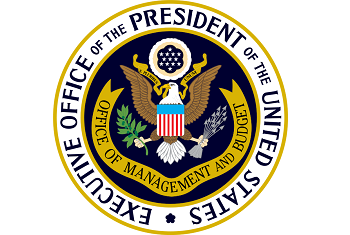By Ryan Kamauff
 Here are the top cyber news and stories of the day.
Here are the top cyber news and stories of the day.
- Obama makes three major personnel announcements – President Obama has announced the heads of three organizations, the OMB, the Department of Energy and the EPA. All of them have extensive experience in the government, specifically in organizations. Via FedScoop, more here.
- Napolitano calls for DHS 3.0, says cybersecurity is a top priority – Janet Napolitano is calling for the third iteration of DHS, DHS 3.0. She sees cyber as one of the core mission areas of DHS 3.0, which will be informed by their data fusion centers and more. Via Daily Caller, more here.
- Clues Suggest Malware Is Moving from PCs to Mobile Devices – While predators have yet to identify a solid business model for attacking (and exploiting) mobile devices, it is possible that they will start moving to a drive-by format for infiltrating mobile devices. Via Technology Review, more here.
- Sequester to impact DOD schools, commissaries – The sequestration, while unable to touch military personnel, is hitting both DOD civilians, and the services they provide to military personnel. DOD schools may have to cut summer school programs, and some military commissaries will have to have furlough days and days off. Via FedScoop, more here.
- A Different Way to Fight Malware – A top malware researcher, Mikko Hypponen of F-Secure, believes that we are not focusing enough on how to recover from malware infections. F-Secure’s new product, Antibot, looks to change the way that defense acts. “The purpose of Antibot is to do all of that grunt work for you, then feed you the most important information — what malware hooked you, when, and what sensitive sites you’ve visited since then — and then suggest further steps, like changing the passwords used on Websites that have been accessed since the infection.” Via Enterprise Efficiency, more here.
- Nuke option necessary in case of massive cyberwar, report concludes – “The United States should be prepared to use every military option, including nuclear retaliation, in response to a huge computer attack, an independent Department of Defense task force said. But the nation must determine whether its nuclear arsenal can withstand computer hackers, the Defense Science Board warns in a newly declassified report obtained by the Tribune-Review. In a full-scale cyber war, the board’s experts say, the United States’ weapons could be disabled or turned against its troops.” The thought that we might retaliate with nuclear weapons to a cyber attack should give everyone pause, and is something that needs to be discussed further and deeper. Via Stars and Stripes, more here.
- Transparency around cyberattacks increases – “At least 19 financial institutions have disclosed to investors in recent weeks that their computers were targets of malicious cyber attacks last year, a sign of growing openness among corporations about the breadth of cybersecurity incidents plaguing the private sector.” Most of these attacks were last year’s DDoS attacks, which limited access to the financial network. All networks are open to attacks, mitigating and rebounding from these attacks is key. Via Oakland Press, more here.
- Federal IT efforts set for cuts under sequestration – Federal IT may be one of the hardest hit by sequestration. IT is one of the areas which was consistently struggling for more money, and our networks cannot afford to take the hit that sequestration is bringing. While most cuts are around 5%, they will certainly all add up and limit the efficacy of our IT spend. Via FierceGovernment IT, more here.
- GSA’s OCSIT continues innovation momentum – “In the past month, the U.S. General Services Administration’s Office of Citizen Services and Innovative Technologies has released a set of baseline social media metrics for the federal government, a social media application programming interface and is looking into privatizing parts of FedRAMP.” As the OCSIT continues to create and expand citizen engagement, we may find a federal government that is more in line with citizen needs and desires. Making services more available to citizens also increases the value of tax dollars. Via Fed Scoop, more here.


Leave a Reply
You must be logged in to post a comment.